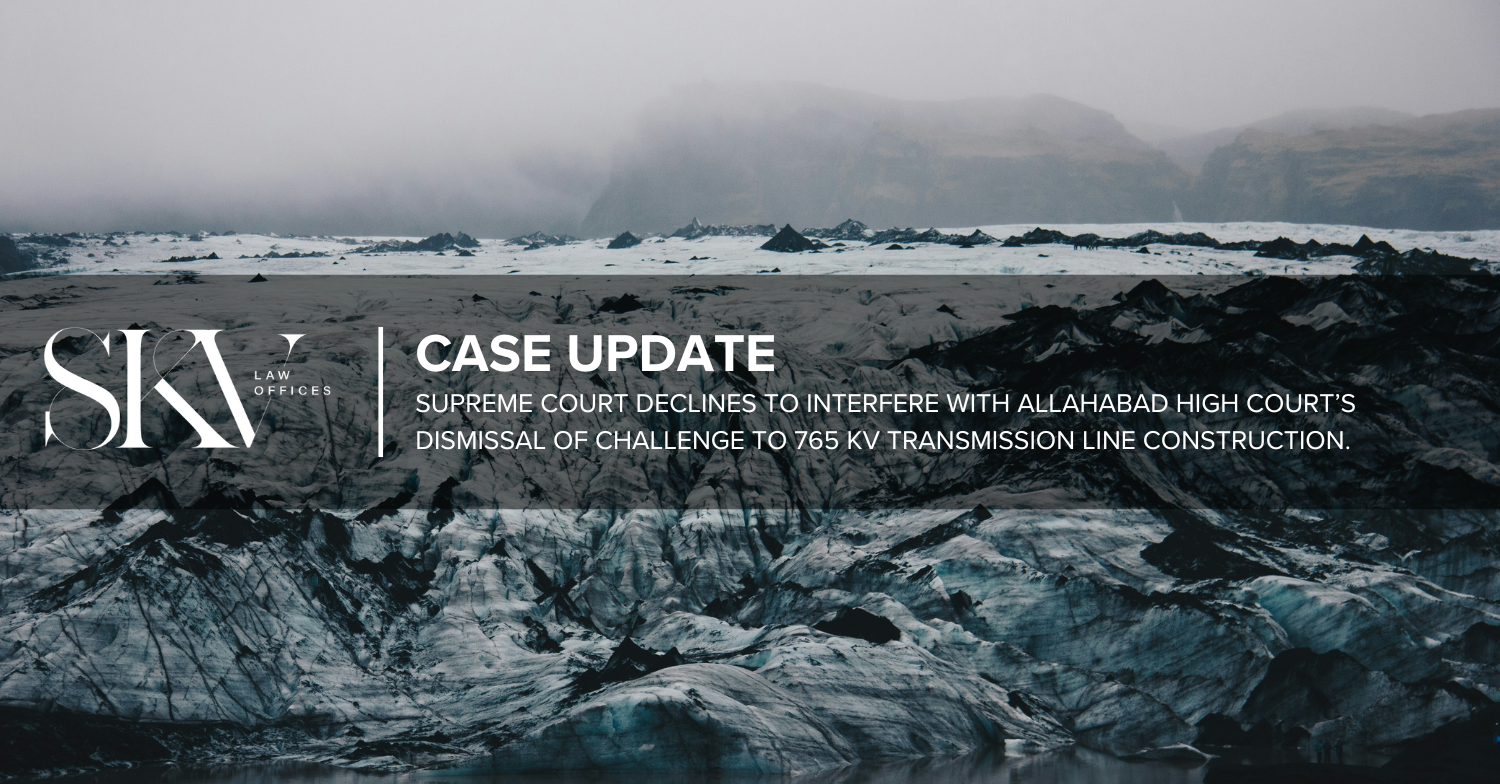Supreme Court Declines to Interfere with Allahabad High Court’s Dismissal of Challenge to 765 KV Transmission Line Construction
06.05.2025
On May 13, 2025, the Supreme Court of India dismissed a Special Leave Petition (“SLP”) filed by a private landowner challenging the judgement of the Allahabad High Court on 17th March 2025. The High Court had previously dismissed a Writ Petition filed by the landowner, challenging the construction of a 765 KV transmission line by the South Eastern Uttar Pradesh Power Transmission Company Limited (“SEUPPTCL”) over his propert in Village Tewa, Kaushambi District in Uttar Pradesh.
The Landowner had approached the Allahabad High Court, contesting that the District magistrate, Kaushambi had issued an order on 27th January 2025, upholding the legality of the transmission infrastructure passing over his property. He had sought the quashing of the District Magistrate’s order and the removal of the transmission line, arguing that his village had not been included in the original route map annexed to the notification issued under Section 164 of the Electricity Act, 2003, dated Sept 2, 2013. He had further contended that this constituted a change in the alignment of the transmission line and had adversely impacted the usability and enjoyment of his residential property.
The High Court had held that the petitioner had purchased the property in 2021, even though the construction of the transmission line had been completed as early as 2015. In light of the same, the High Court had found that the petitioner was aware of the line’s existence at the time of the purchase and therefore could not claim to have suffered an unforeseen injury to rights.
The High Court’s judgement also relied on Section 17 of the Indian Telegraph Act, 1885 and Section 164 of the electricity Act, 2003, which empowered transmission licensees to install lines over private property, as long as appropriate compensation was provided. The High Court emphasised that infrastructure projects serving larger public interests should not be hindered unless there is a manifest legal infirmity. The Court cited Sections 20A and 41(ha) of the Specific Relief Act, 1963, which restrict courts from granting injunctions in respect of infrastructure projects.
After the Allahabad High Court dismissed the petition, the petitioner approached the Supreme Court in an SLP. A bench of Justice Manoj Misra and Justic K.V. Vishwanathan heard submissions from both sides, and declined to interfere with the High Court’s judgement.
The Order of the Supreme Court in this matter can be accessed here.
The respondent, South Eastern Uttar Pradesh Power Transmission Company Limited (SEUPPTCL), was represented before the Supreme Court by Mr. Shri Venkatesh (Founding Partner), Mr. Shryeshth R. Sharma (Partner), Mr. Akash Lamba (Senior Associate), and Mr. Kunal Veer Chopra (Associate) of the SKV Law Offices Team.


